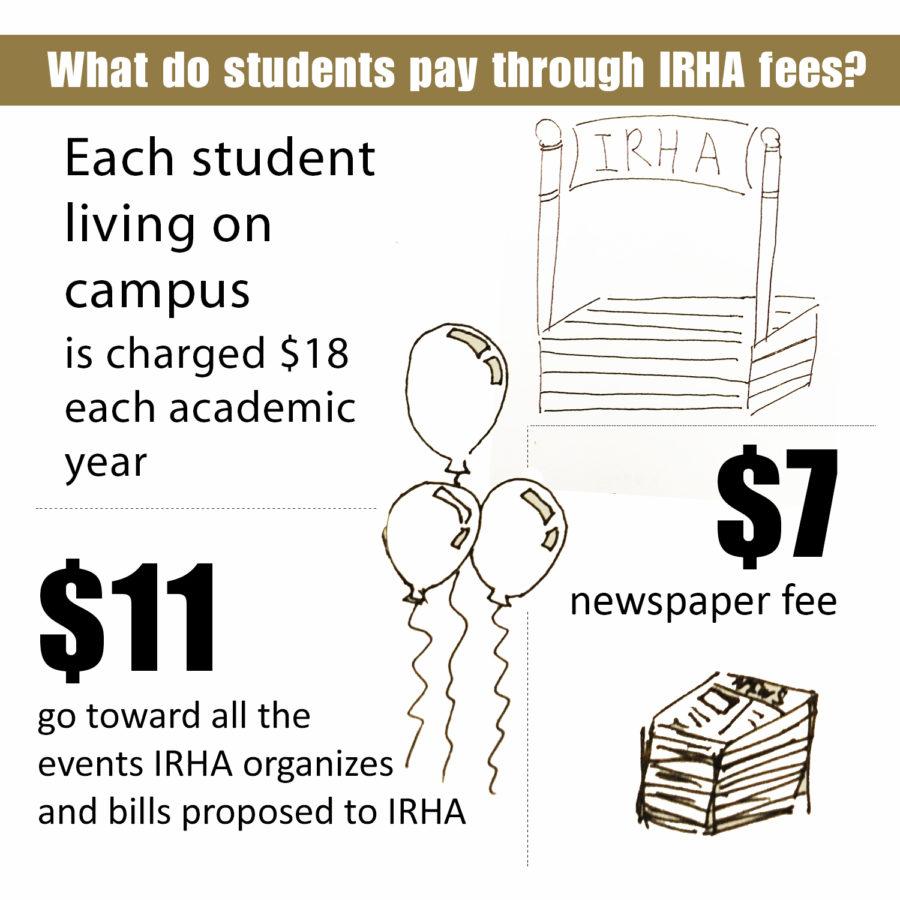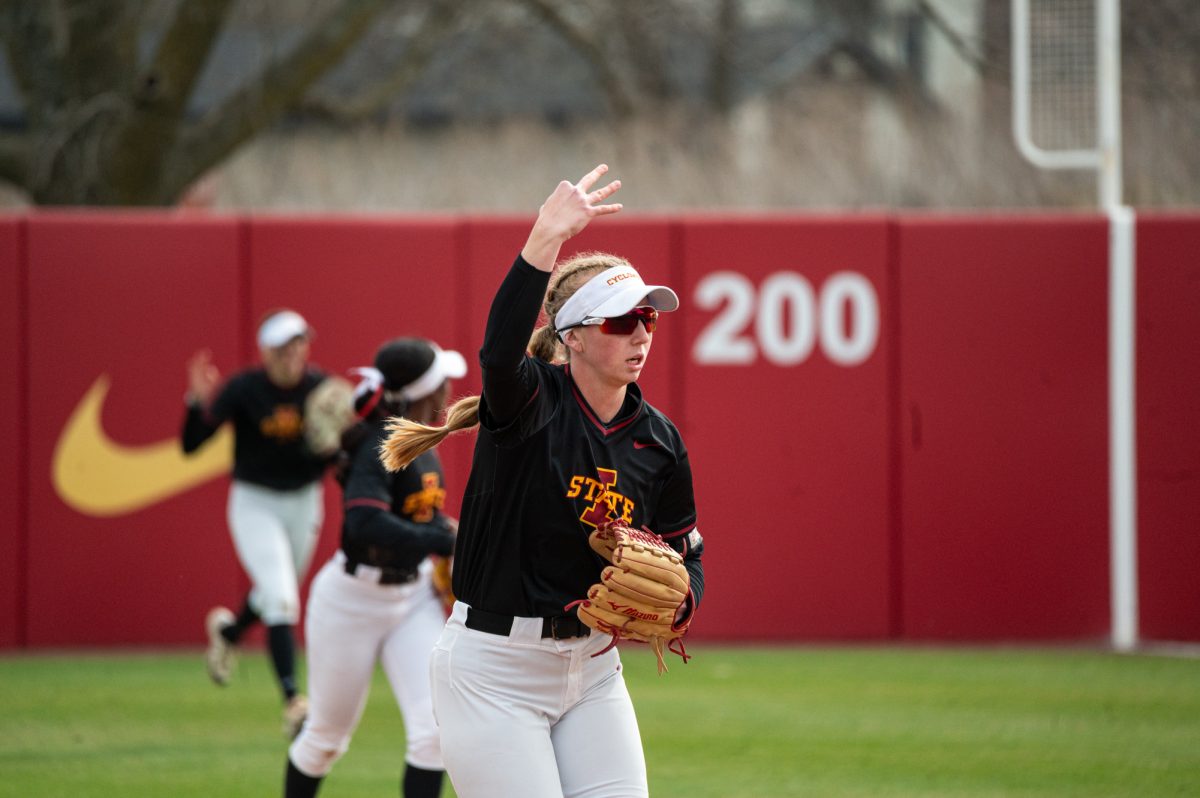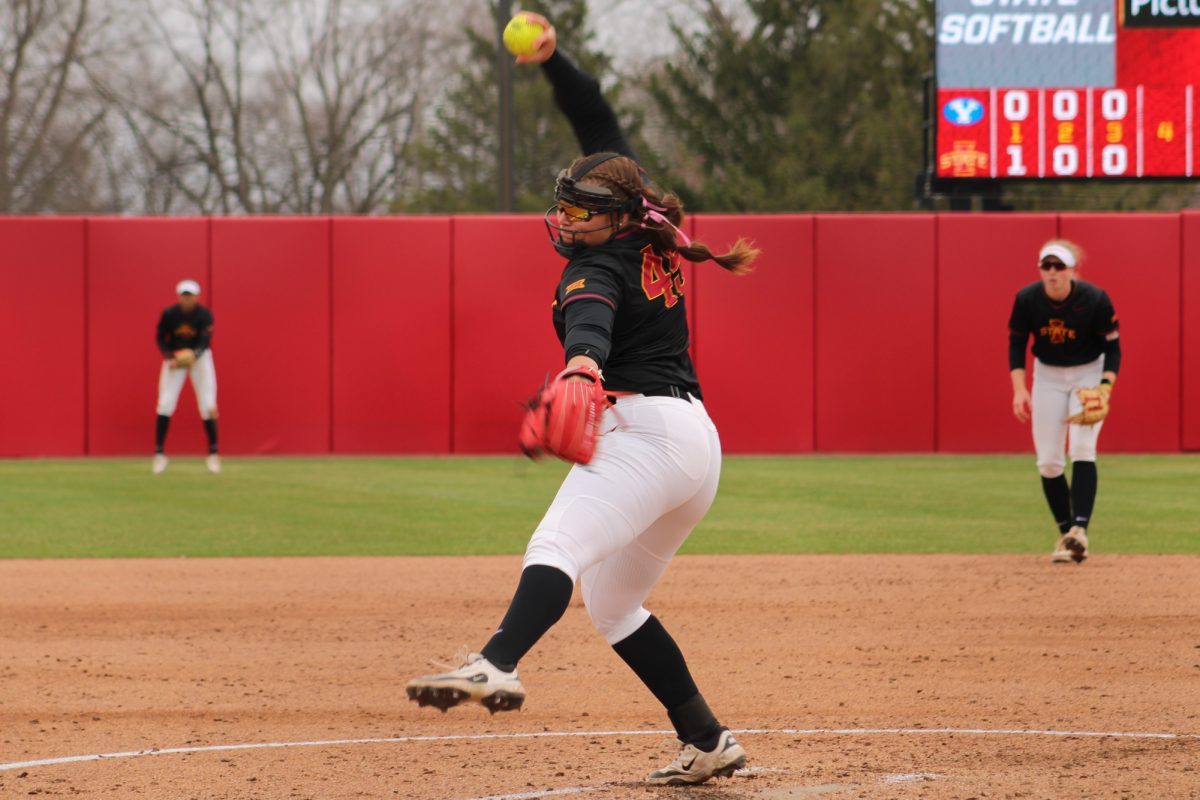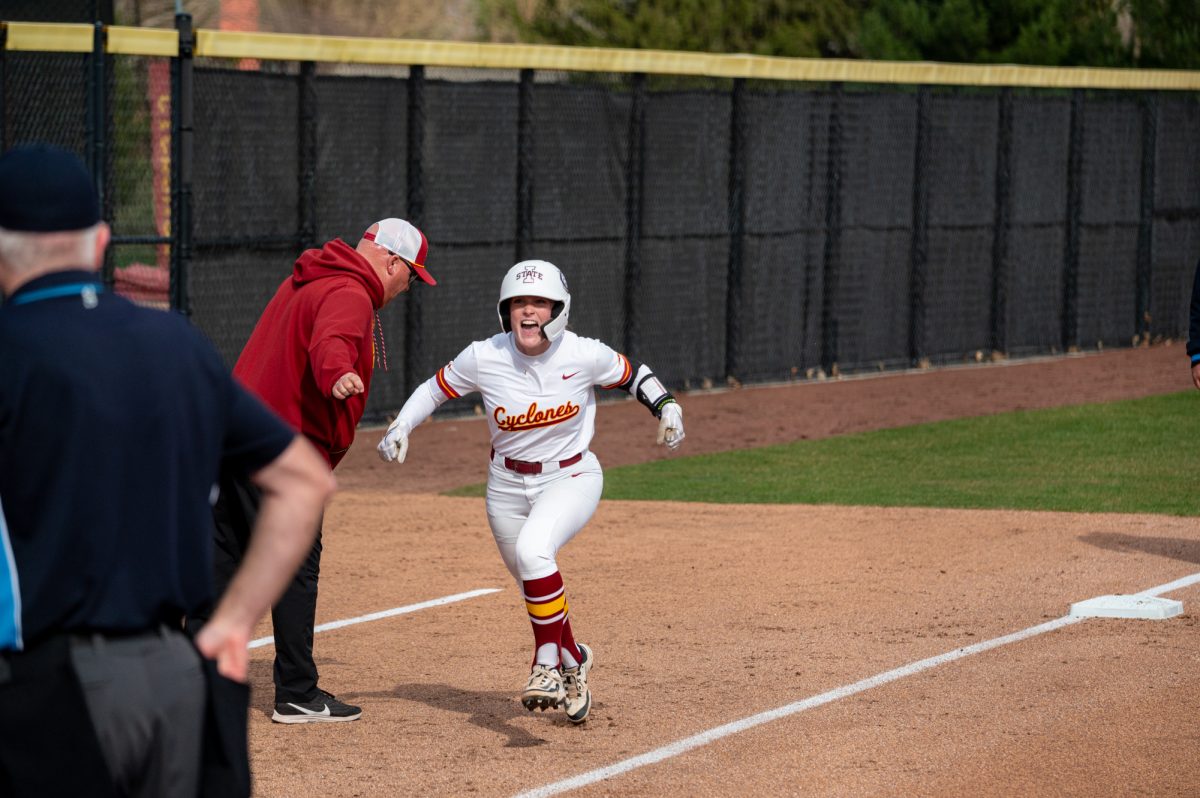What does IRHA provide students?
Graphic: Azwan Azhar/ Iowa State Daily
Every student who live on campus are required to pay $18 to provides funds for the association.
November 13, 2013
The Inner Residence Hall Association receives funds from every student living on campus each academic year.
IRHA is a student-run organization set up with the hopes to connect students to each other while also creating a medium that connects students to the Department of Residence and ISU Dining.
At the beginning of each academic year, students are charged $11 for IRHA funds and $7, which covers the newspaper fee.
“[The funds] go towards all the events IRHA puts out and bills proposed to IRHA,” said Kelsey Behnke, director of finance of IRHA and freshman in finance. IRHA follows a budget proposed by the director of finance, which includes funds for events such as Fall Fest and Residence Hall Week, Cyclone Cinema, a newspaper readership program, scholarships, a depreciation fund and a discretionary fund, which includes all the money IRHA is able to spend outside of a preplanned budget.
Residence halls have members on IRHA who represent their own hall, and these members are able to vote on bills they feel is the best for their residence hall.
“We have a parliament which forms bills, and as a parliament, we debate, and vote on the bills to decide if we want to fund them collectively,” Behnke said. “We debate and fluctuate on how much money we want to spend on each event.”
Behnke said almost everything comes out of the discretionary account unless it is a planned event. Events like Extra Life Dance Marathon and Haunted Helser are funded by the discretionary account.
Hall governments follow a similar budgetary guideline as IRHA. Each individual residence hall receives dues from their residences that are set aside for certain hall events.
Similar to many halls on campus, Buchanan Hall gives money to each floor to spend as they choose.
“We promote events that promote a more social active community,” said Alberto Gomez-Estrada, treasurer for Buchanan Hall and junior in computer engineering. “They can plan anything fun; get food, watch movies.”
Residence halls follow a similar protocol as IRHA when deciding how to allocate their funds. Gomez-Estrada said IRHA floors can request a special amount of money to fund events.
Behnke and Gomez-Estrada expressed the difficulties in managing a large amount of student’s money.
“[The] most challenging part is handling money,” Gomez-Estrada said. “There [are] a lot of checks and balances that come with being a student organization.”
Behnke said taking care of students’ money is a major responsibility.
“Taking care of students’ money is a big responsibility in a sense that I have a lot of control, and I don’t want to mess anything up for future years,” Behnke said.
IRHA and hall governments allow students to get involved in their community, Behnke said.
“IRHA is a really good thing for us to have because it is for the residence halls and for our well-being at Iowa State” Behnke said.
Gomez-Estrada said he doesn’t limit himself to just making budgets.
“I get to set up many events on the board. I get to put my input in being able to promote a diverse community.”







